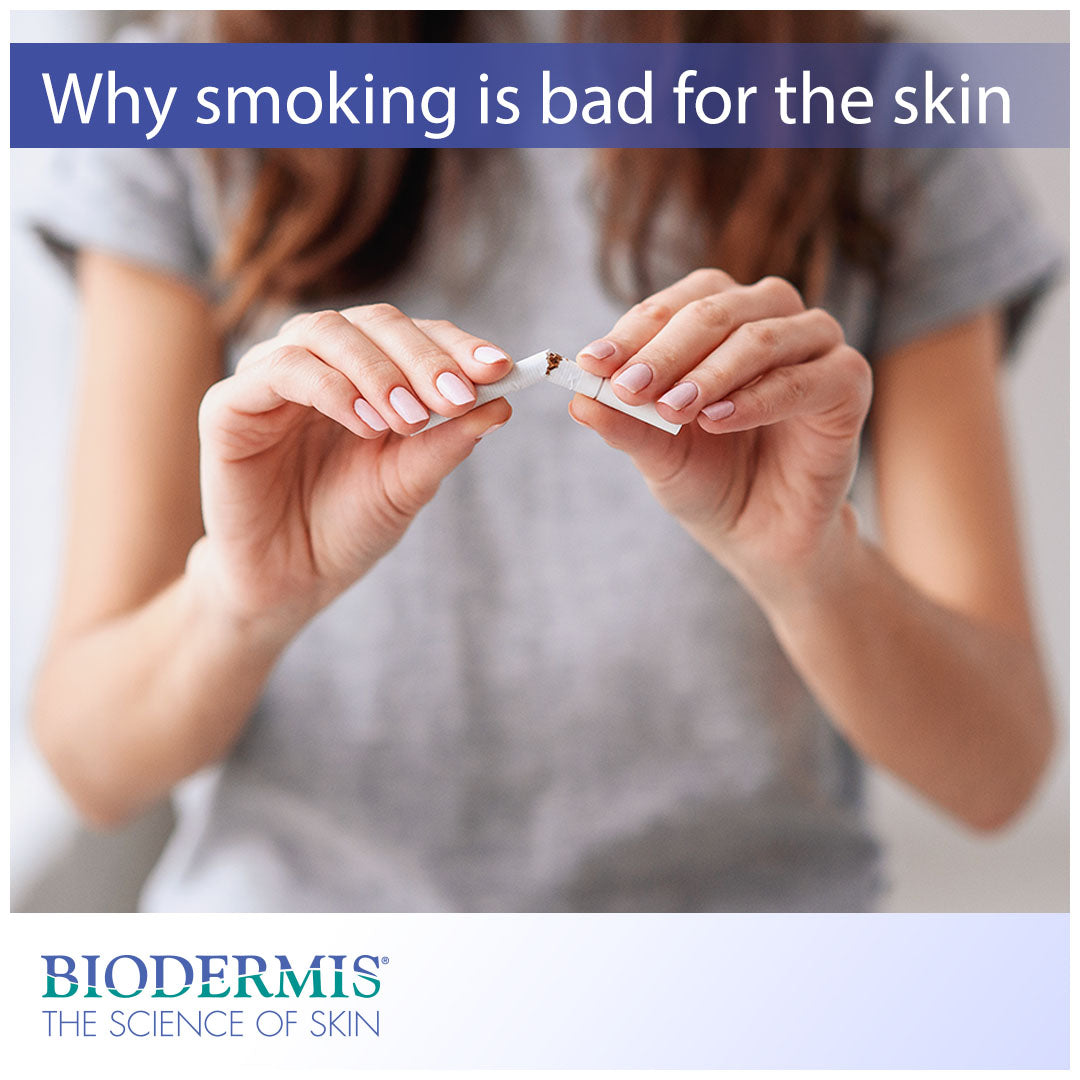Continue reading to learn more about the skin-related health effects of smoking and what you can do to fight back.
Ways that smoking affects the skin
Cigarettes contain nicotine which is considered a vasoconstrictor. Vasoconstriction is the narrowing of the blood vessels which results from the contraction of the vessels’ muscular walls. Blood transports nutrients to our skin, so when vasoconstriction occurs, our skin won’t receive enough blood flow and vital nutrients that it needs. Many effects can occur from this including impaired wound healing, dry or dehydrated skin, and loss of skin elasticity. Skin elasticity is partly due to the collagen matrix that forms the structure of our skin. Collagen is a structural protein that gives skin its integrity and shape. When we smoke, collagen fibers may break down more rapidly, leading to wrinkles and fine lines on the face.
As was already mentioned, smoking cigarettes can lead to delayed wound healing that occurs from surgery or injury. Wounds that take longer to heal are more prone to infection and an increased amount of scar tissue. A smoker’s wound may develop into hypertrophic or keloid scars, though genetic factors also play a role in their formation. Smoking may also rob the skin of its natural color, leaving the skin pale and less vibrant. Cigarette smoke contains carbon monoxide which can deplete the skin’s natural oxygen levels, causing it to lose or change color. The last way that smoking can have effects on the skin is through lack of sleep. Many smokers often report feeling groggy and tired after even a full night’s sleep. This seems to indicate that smokers may have difficulty reaching deep sleep. Not getting enough good sleep can cause bags under the eyes and lead to an overall lethargic appearance.
So what can be done?
The obvious answer is to quit smoking, but that is often easier said than done. If you can’t completely quit smoking, try cutting back you intake little by little. Alternative methods for quitting without giving up nicotine completely may be to use nicotine patches, pouches, or gum. If you are a smoker who suffers from abnormal scar types or dry skin, medical-grade silicone may help. Topical silicone for scars is the only clinically-proven solution to help flatten and fade keloids and hypertrophic scars. Other uses of medical silicone are to hydrate the skin and reduce fine lines and wrinkles. Ask your doctor if topical silicone is right for you or order online today at biodermis.com.
Biodermis is an innovative market leader with 30 years of expertise in the medical silicone industry. Visit Biodermis.com today to explore a complete range of scar management and post-operative care solutions.
PHYSICIANS AND MEDICAL PROFESSIONALS: REFER OR RESELL?
Biodermis offers custom tailored referral programs designed to simplify and reduce the cost of your patients' post-op care. Additionally, we offer professional pricing if you opt to retail our products. Give us a call at 800.322.3729, and we will be happy to provide additional details on these programs.





